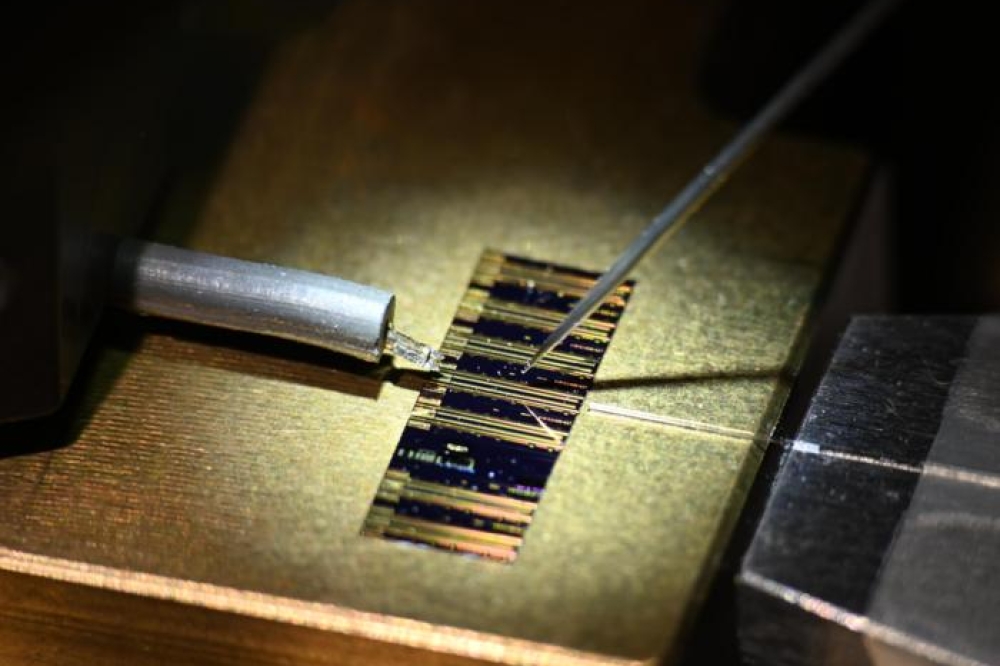News Article
Oxford Instruments & Southampton University Unite In Research Efforts
Oxford Instruments’ process engineers will have use of its 10 systems and selected other equipment installed at the Southampton Nanofabrication Centre (SNC).
Oxford Instruments and the School of Electronics and Computer Science (ECS) at the University of Southampton have just signed a research-based collaboration agreement.
Oxford Instruments has 10 systems installed in the University’s state-of the-art Southampton Nanofabrication Centre (SNC), operated by the ECS Nano Research Group. Oxford Instruments’ process engineers will have use of this and selected other equipment at the SNC which opened just last year.

This will in effect expand Oxford Instruments’ research capabilities, and increase the already extensive process offering the company is able to make its customers. Oxford Instruments’ systems installed in the SNC include: FlexAL ALD tool, Ionfab 300Plus ion beam tool, Plasmalab System400 sputtering tool, Plasmalab,System80Plus RIE plasma etch tool, Nanofab1000 nanoscale growth tool, System100 PECVD plasma deposition and System100 ICP380 plasma etch tools.
In addition, Oxford Instruments is funding a post-doctoral position to work on a collaborative project with the SNC and other partners. This project will build on work funded by Engineering and Physical Sciences Research Council (EPSRC) at the SNC as part of the Nanotechnology Grand Challenges for Healthcare research programme.
The project will research novel materials and technologies for use as nanowire OXF biosensors. The ultimate objective of both the Oxford Instruments and EPSRC projects is to build a nanowire biosensor system that can be used as a diagnostic tool for point of care applications.
Professor Peter Ashburn, Director of the Southampton Nanofabrication Centre at the University commented,“This collaboration with Oxford Instruments is undoubtedly a clear indicator that our research expertise and facilities are among the best in the world. We are certain the relationship between our two organisations will be mutually beneficial and our aim is that it will result in a commercial product for use in the life science and healthcare markets.”
Frazer Anderson, Business Development Director at Oxford Instruments Plasma Technology, is equallypositive about the collaboration, and said, “As a leader in systems and processes for etch, deposition and growth,Oxford Instruments has an established relationship with the University of Southampton, with a substantial range of its equipment already installed in the SNC. One of Oxford Instruments’ key objectives is to pursueresponsible development and deeper understanding of the world through science and technology, and this collaboration with such a prestigious research university is just the type of activity that will achieve this end.”
Alec Reader, Director of the NanoKTN, was instrumental in facilitating the initial discussions between Oxford Instruments and SNC and has strongly encouraged industry-university collaborations of this type.
Oxford Instruments is currently involved in discussions with the NanoKTN on ideas for taking this research forward to the next stage.































